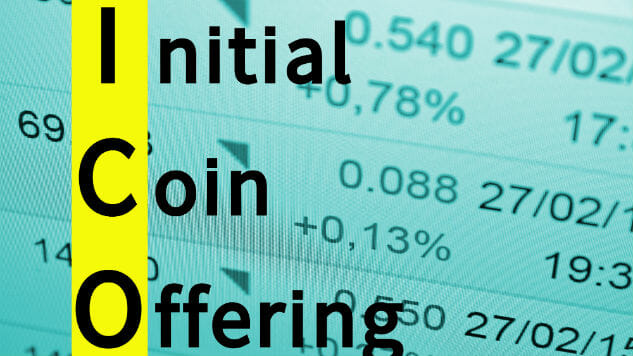ICOs Have Raised $30 Million in 30 Seconds. But Is the Risk Worth the Reward?
Photo by Shutterstock
You’ve probably heard a lot about initial coin offerings, or ICOs, in the last few weeks. The fundraising method has been around a while but in the last few months has gained some notable traction.
For the uninitiated, an ICO is part initial public offering (IPO), part crowdfunding, part cryptocurrency.
Startups and entrepreneurs have launched ICOs where anyone can invest in the business by purchasing crypto-tokens that represent value in their ecosystems. Many have been using the bitcoin alternative Ethereum to build and create their own unique tokens to sell. One company Brave, founded by Mozilla’s Brendan Eich, launched an ICO earlier this year where it sold “basic attention tokens”, or BAT, to users and raised $35 million in 30 seconds.
For proponents of ICOs, the method is a quicker route to financing that will make venture capital funds obsolete and bring about quicker, faster innovation for startups. For critics or skeptics, it’s a high-risk model that could come crashing down at any moment.
One of the main reasons we’re all talking about ICOs right now is that the sums of money have reached staggering heights.
In mid-July, blockchain startup Tezos raised $232 million in an ICO crowd sale, setting a new record for the funding method. It follows another ICO just a month earlier that thought had set a seemingly untouchable record. Bancor, a company that’s building a platform for creating your own tokens on the blockchain, launched its own ICO and raised $150 million. ICOs are open to anyone and in the case of Bancor, established investors have tried to get involved with Tim Draper of VC firm Draper Fisher Jurvetson, which manages $5 billion in assets, contributing to the ICO.
This is becoming a common trend where established businesses are starting to look into crypto tokens as a means to raise money as well as a way to diversify their business.

Kik, the messaging app, launched its own cryptocurrency called Kin for users to purchase services in an ecosystem it hopes to build around this currency, which it kickstarted with a crowd sale for tokens. The path is clear in one sense: Crypto tokens are no longer a niche thing. Even Mark Cuban has got involved “High risk. High reward” as the impetus— and is contributing to an ICO by one of his portfolio companies.
However, things are still hazy. The Brave token sale raised some eyebrows. It may have sold its entire stock of BAT tokens in 30 seconds but this shut out a considerable amount of people that wanted to buy tokens. Looking at the figures, only about 130 people actually contributed to the token sale with about five buyers accounting for half the supply of BAT. This concentration of token holders runs against the open nature that cryptocurrencies supposedly espouse.
Then there’s Status, a messaging app built on Ethereum, that raised $44 million with just a fresh alpha of its app available. The ICO gives Status ample funds to develop its product but much like traditional crowdfunding, with the money in tow, the onus is on the company to deliver.
There have been cases of once successful crowdfunding campaigns on the likes of Kickstarter that have flamed out with backers sometimes having to fight for their money back. In the case of an ICO, it’s unclear what protections, if any, that investors will have.
There’s also the matter of security. The Decentralized Autonomous Organization (DAO) was a sort of blockchain-based fund. It raised about $150 million from investors until the system was hacked and all of the money was pinched in one fell swoop. Regardless of this massive blunder, which still echoes in the minds of many, ICOs have swelled in popularity.
Risk and cryptocurrency go hand in hand. Bitcoin’s initial boom in value in 2013 and 2014 eventually led to the digital money plummeting from a valuation worth thousands of dollars to a couple of hundred. Infamous bitcoin exchange Mt Gox was allegedly hacked and people’s money swept away (or it was embezzled, depending on where you stand). The exchange’s operator is currently facing the courts in Japan over the debacle.
Hacks are one thing. Regulators are another. With the attention that ICOs have garnered, they will surely catch the eye of authorities. There’s little legal agreement over whether or not ICOs are actually legal. The method is anything but traditional meaning many token sales are operating in a legal grey area. Could this come back to bite some companies? Possibly.
There’s little agreement over whether or not a crypto token is considered similar to a security. If it is, then the Securities Exchange Commission will be compelled to step in and lay down some rules. That could stymie the growth of ICOs and for some proponents, it would fly in the face the regulation-free environment that cryptocurrencies promise. As more traditional investors start getting involved in the ICO buzz too, expect to see some potentially big changes in the not too distant future.







































